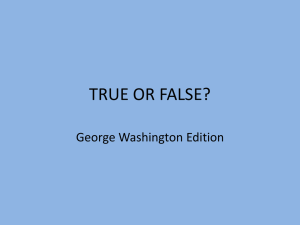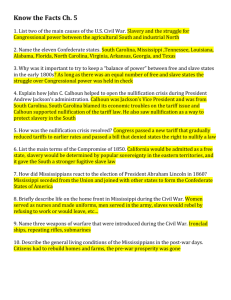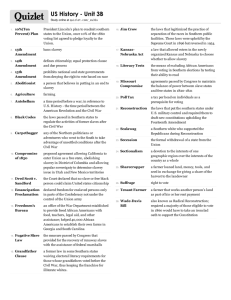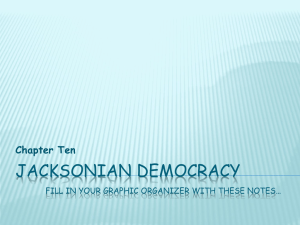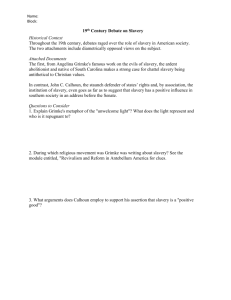Slavery's Impact on the White South
advertisement
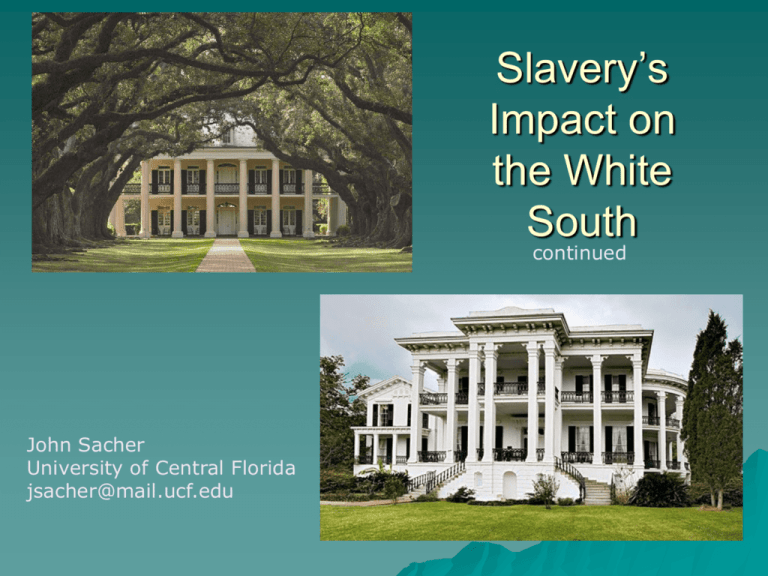
Slavery’s Impact on the White South continued John Sacher University of Central Florida jsacher@mail.ucf.edu Slavery’s Importance Slavery “is incorporated with every fiber of our social and political existence.” (James Henry Hammond, 1860) Slavery “has fashioned our modes of life, and determined all our habits of thought and feeling and molded the very type of our civilization.” Benjamin Palmer (1860) Second Great Awakening Baptist Church Methodist Circuit Riders The Bible and Slavery Josiah Nott, Types of Mankind Good Society Argument Missouri Compromise John C. Calhoun Exposition and Protest (1828) Nullification Nullification Enforcing the Tariff Tariff 1833 “Am I gagged or am I not?” Representative John Quincy Adams responding to the gag rule in the House of Representatives, May 25, 1836 The Gag Rule Compromise of 1850 Kansas Nebraska Act (1854) Fire Eaters Dueling John L. Wilson, The Code of Honor The Sumner Brooks Affair Yeoman—A funny word Yeoman (plural Yeomen) Not Yoeman, nor Yo-Man, nor Yowman Definition—An independent farmer. – What makes one independent? – What makes one a farmer? – Did yeomen own slaves? Another definition “A self-working farmer” – What percentage of the South’s population were Yeomen? Yeoman Farmer Dog Trot House White Southern Unity(?) 1. 2. 3. 4. 5. Race Politics Economic Relationships Social Mobility Kinship John C. Calhoun “With us the two great divisions of society are not the rich and poor, but white and black; and all the former the poor as well as the rich, belong to the upper class, and are respected and treated as equals.” Yeomen in Politics Andrew Jackson’s Houses
